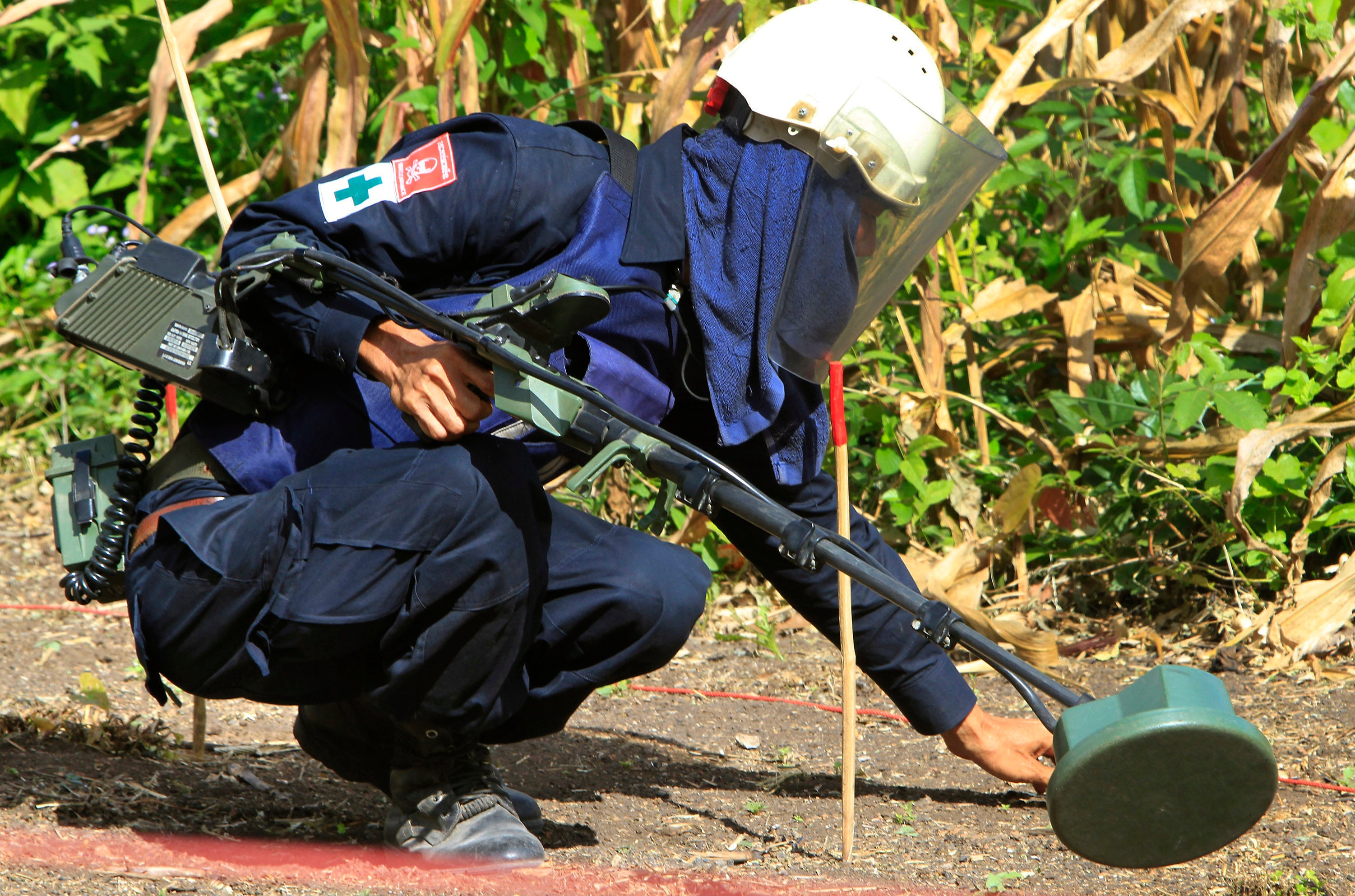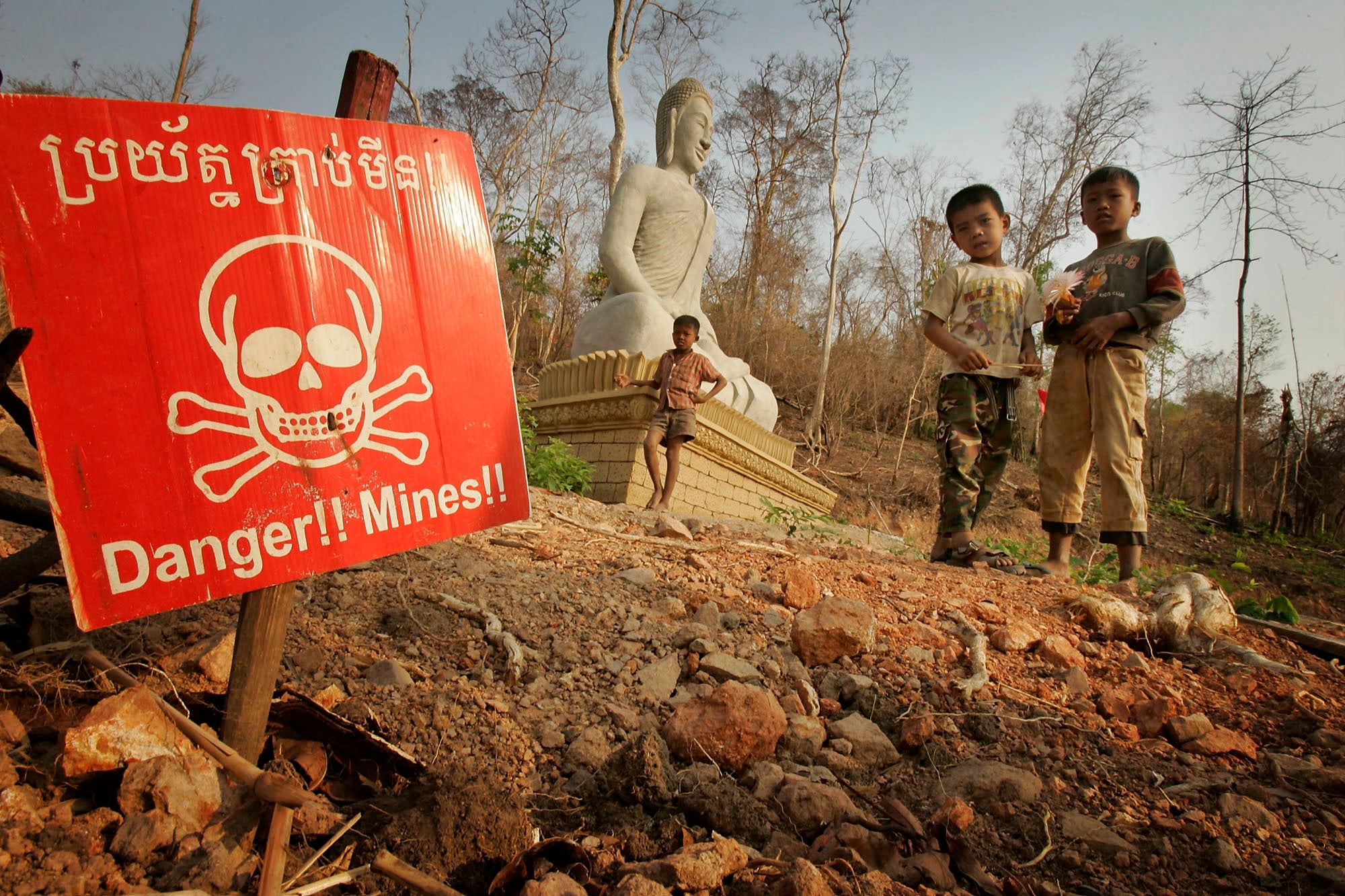Five people killed by unexploded land mines in Cambodia
Two separate explosions from ordnance left over from Cambodia’s decades of warfare have killed five people

Two separate explosions from ordnance left over from Cambodia’s decades of warfare killed five people and injured two others, the head of the country’s demining agency said Monday.
Some 4 million to 6 million land mines and other unexploded munitions are estimated to have littered Cambodia’s countryside during almost three decades of war and disorder that ended in 1998.
On Saturday, four members of a family in the northeastern province of Mondulkiri who had gone into the forest to collect resin were killed when a grenade exploded from a handheld B-41 rocket launcher believed to date from the 1980s, according to Heng Ratana, director general of the Cambodian Mine Action Centre.
He said he did not know what set off the device, which also injured a 6-year-old girl and the mother in the same family.
Heng Ratana also told The Associated Press that a 47-year-old man who was a dealer of sand used in construction was killed on Sunday in the southern city of Sihanoukville when a 105-mm artillery shell exploded. The director general was unable to provide further details.

Despite a very active demining program, many dangerous munitions remain in place, posing a hazard to villagers. Cambodia reported 7,392 suspected hazardous areas totaling 681 square kilometers (263 square miles) as of the end of 2022, according to the International Campaign to Ban Landmines.
There were 65,043 casualties, including 19,822 deaths, caused by land mines and other explosive remnants of war from January 1979 to February 2024, the Cambodian Mine Action and Victim Assistance Authority said. There have been an average of 37 casualties a year recorded for 2021-2023, a sharp drop from when the mine removal programs were started.
Cambodian deminers are among the world’s most experienced, and several thousand have been sent in the past decade under U.N. auspices to work in Africa and the Middle East. Cambodia last year began training deminers from Ukraine, which also suffers from a high density of land mines and other unexploded munitions.
Bookmark popover
Removed from bookmarks